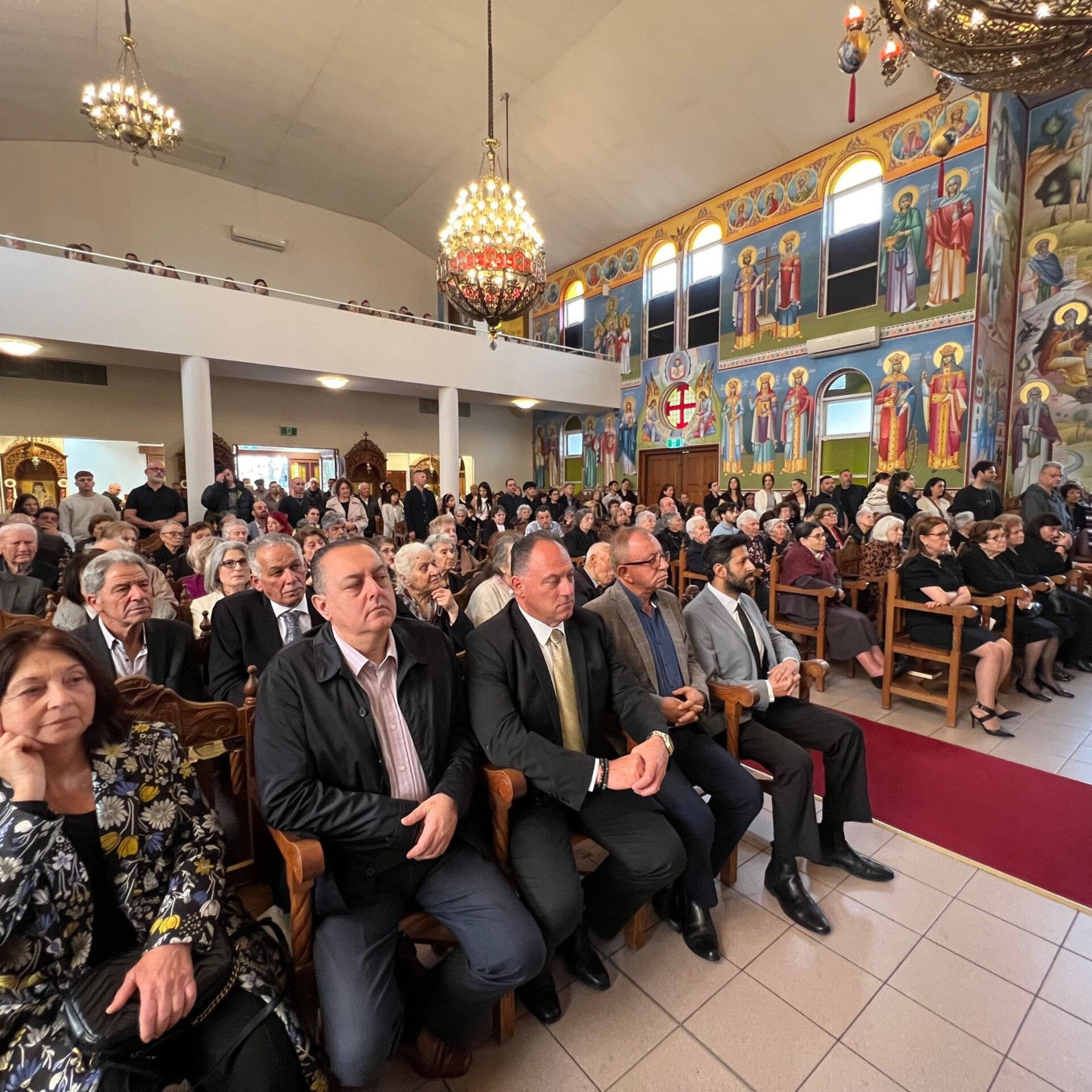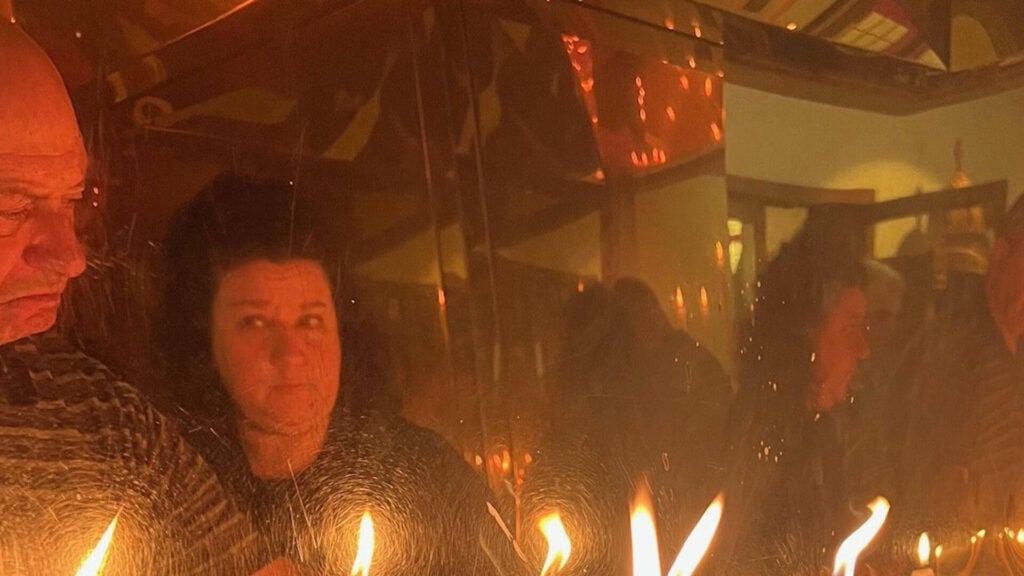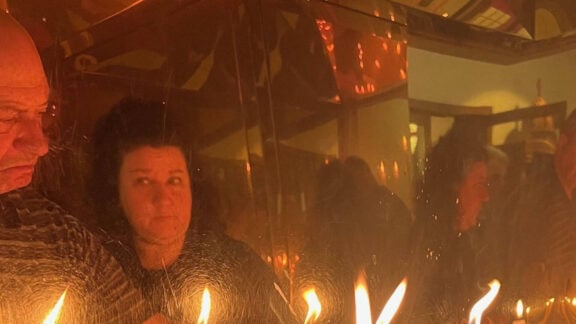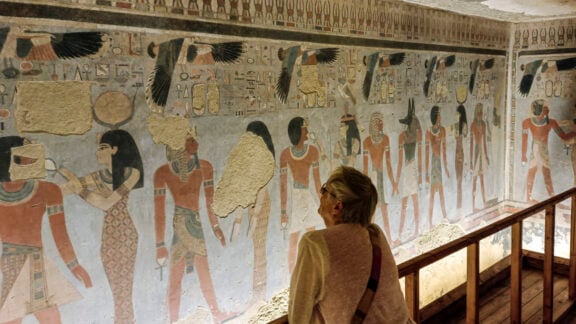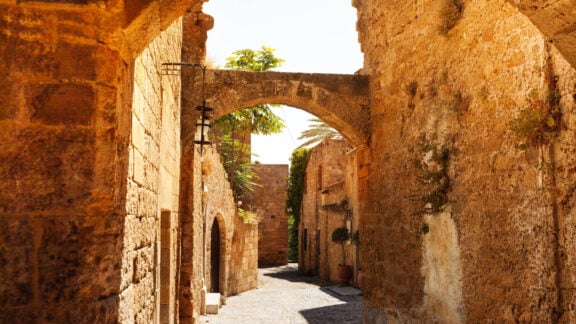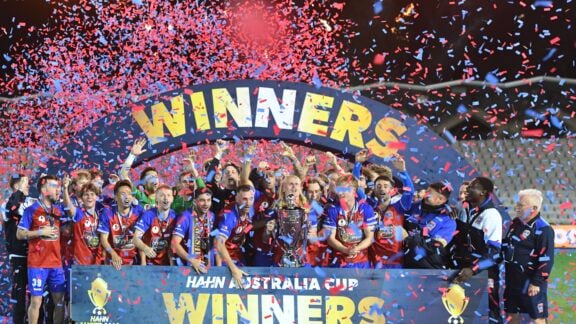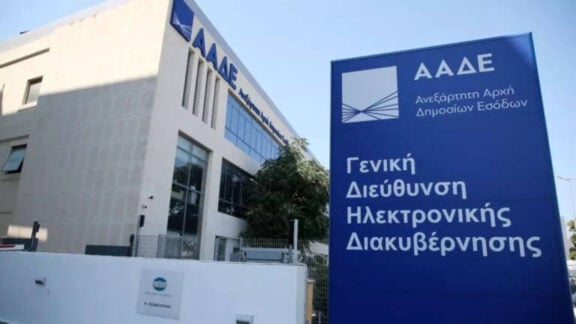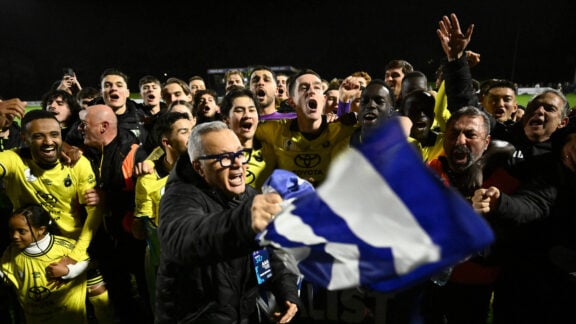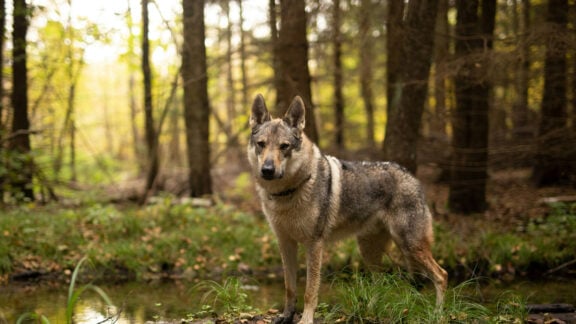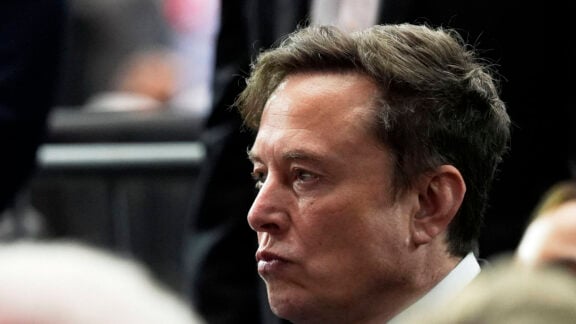October 1 marks the 65th anniversary of Cyprus’s independence from British colonial rule. Today, Melbourne’s Cypriot community gathered at the Church of Our Lord in Coburg to honour those who fell in the struggle.
The Ethniki Organosis Kyprion Agoniston (Εθνική Οργάνωσις Κυπρίων Αγωνιστών), or National Organisation of Cypriot Fighters — EOKA — launched a guerrilla campaign against British rule in 1955. It was a bloody affair that also seeded the post-1974 modern division of the island between Greek and Turkish Cypriots. Cyprus declared independence and became a republic in 1960, led by Archbishop Makarios III as president.
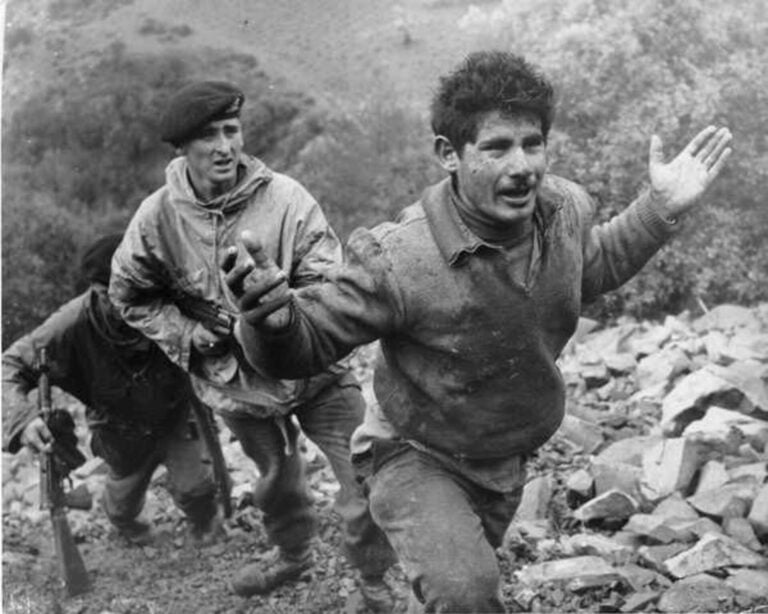
Makarios was deposed on 15 July 1974 during the coup orchestrated by the Greek military junta and led by the nationalist group EOKA B. Citing concerns for the safety of the island’s Turkish minority, Turkey launched a full-scale invasion and has occupied the northern part of the island since. Cyprus has been divided since.
Honouring the past and looking to the future
The liturgy was conducted by Father Leonidas, and the keynote address was delivered by the Acting High Commissioner of the Republic of Cyprus, Nikolaos Varellas, representing High Commissioner Antonis Sammoutis.” Cyprus proudly celebrates this year the 65th anniversary of the establishment of the Republic,” said Varellas. He reminded attendees that although the independence agreement was signed on 16 August 1960 by President Archbishop Makarios III and Vice President Dr Fazıl Küçük, it was decided that Independence Day would be celebrated annually on 1 October.
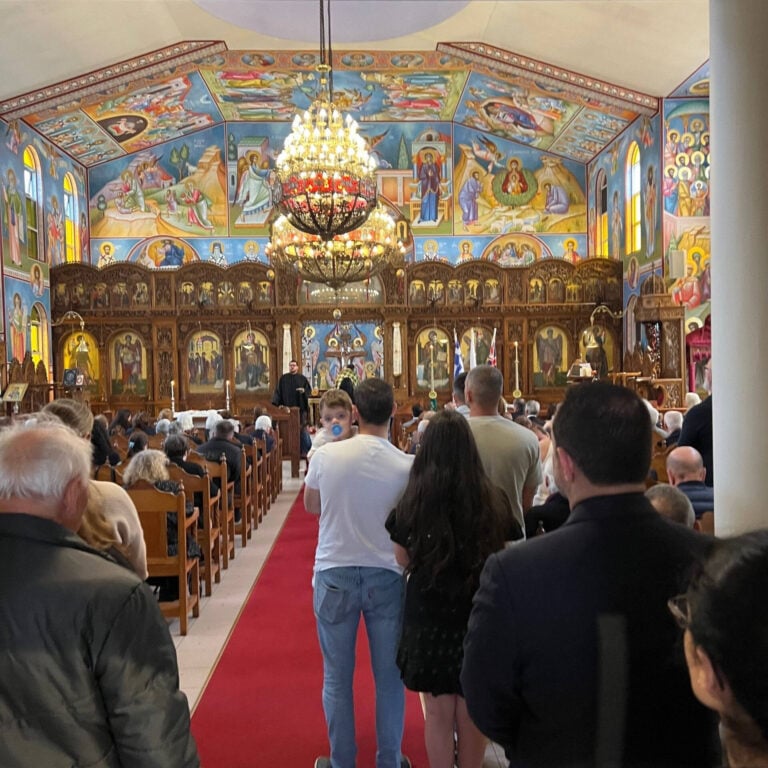
Varellas reflected on the island’s turbulent modern history — from the EOKA struggle, the Zurich–London Agreements, to the intercommunal unrest of 1963–64, the coup of 15 July 1974, and the subsequent Turkish invasion. He paid tribute to the fallen, the wounded, and the missing, noting that 37 per cent of Cyprus remains under Turkish occupation and that more than 250,000 people remain displaced in their own homeland.
He also highlighted the achievements of the Republic of Cyprus as a respected member of the United Nations, Council of Europe, Commonwealth, and the European Union, announcing that from 1 January to 30 June next year, Cyprus will hold the Presidency of the Council of the EU for the second time.
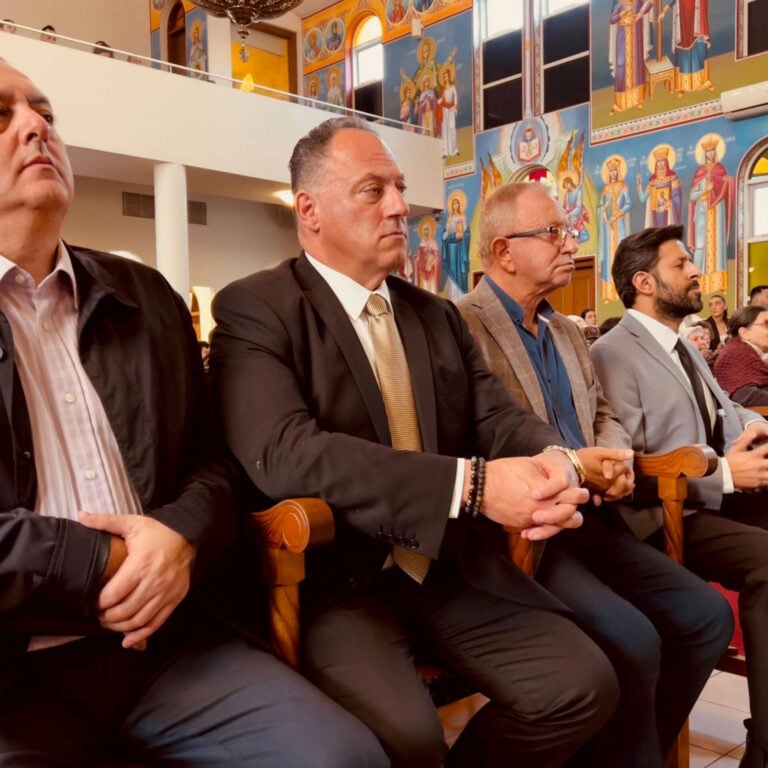
“The government’s priority,” he said, “is a viable and functional solution for the benefit of all Cypriots — one that ensures reunification without discrimination, in accordance with international law and European values.”
The service ended, and outside volunteers from Our Daily Bread sold sweets, food and coffee. One of the volunteers said the charity provides hospitality and meals to the homeless and those doing it tough.
Community leadership and remembrance
Among those attending the service were prominent leaders of Melbourne’s Cypriot and wider Hellenic community, including Theo Theophanous, President of the Cypriot Community of Melbourne, Antonis Kyriakou, President of SEKA (Coordinating Committee for the Cyprus Struggle), Sotiris Stylianou, Vice President of the Greek Cypriot Community of Apostle Andreas, Andreas Christodoulou, President of the Hellenic Cypriot Parents & Youth Association, Antonis Tsourdalakis, President of the Cretan Federation of Australia and New Zealand, and Steve Kyritsis, Past President of the Hellenic RSL Melbourne. Many other representatives of community organisations and brotherhoods were also present.
After the service, Neos Kosmos spoke with Theo Theophanous, a former Victorian Labor minister and now President of the Cyprus Community of Melbourne. He reflected on the heavy price paid for Cyprus’ independence.
“Independence involved sacrifice. The British were brutal in their response, hanging nine people, one just sixteen years old. His only ‘crime’ was tearing down a British flag.” Theo Theophanous President of the Cypriot Community of Melbourne
“Sixty-five years since Cyprus became an independent republic, we must remember the struggle that preceded it — an armed insurrection against the British,” he said.
“Independence involved sacrifice. The British were brutal in their response, hanging nine people, one just sixteen years old. His only ‘crime’ was tearing down a British flag.”
Theophanous said at least 14 Cypriots were tortured and then murdered by UK forces. In 2019, the UK government paid close to 2 million Australian dollars to 33 Cypriots who were tortured by British forces. Among them was a girl, 16 years old at the time, who said she was repeatedly raped by British soldiers.
Theophanous said that independence “wasn’t handed to Cypriots.”
“Our independence, like that of the Greeks who fought the Ottomans, was won through blood and struggle.”
Reunification and the role of the Diaspora
Asked about the prospects for reunification, particularly amid Turkish President Recep Tayyip Erdoğan’s increasingly defiant rhetoric, Theophanous said that the 19 October elections in the occupied north will be critical.
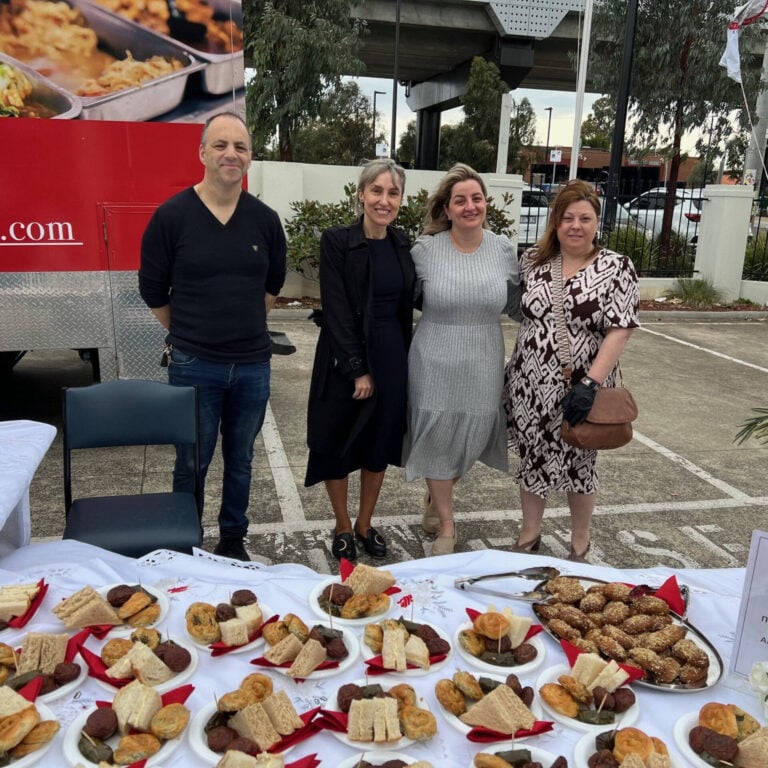
“The opponent to Ersin Tatar, leader of the self-proclaimed but unrecognised ‘Northern Republic of Cyprus’, is committed to resuming talks on a bi-communal federation,” he said. He added that “virtually every country” and the United Nations continue to support a federal model as the best path forward.
Calling Erdoğan “a sly political operator,” Theophanous argued that the Turkish leader’s rejection of a federated Cyprus is “part of a calculated game plan — pushing for maximum advantage before conceding ground.”
Melbourne’s Greek and Turkish Cypriots
In multicultural Melbourne, Greek and Turkish communities have long enjoyed cordial relations. Asked whether efforts were being made to strengthen and/or rebuild ties between the two diasporas, which have frayed in the last few years. Theophanous said he was disappointed that “some bridges and projects have broken down in recent years.”
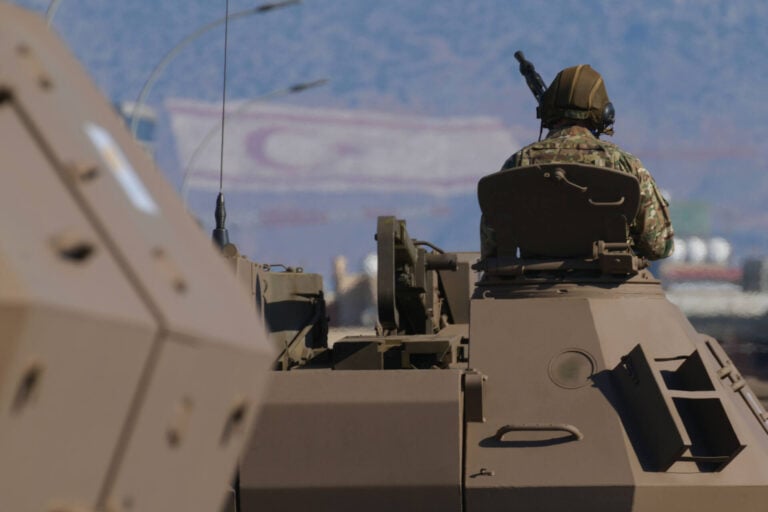
He attributed the blame to the 2024 visit by Ersin Tatar, the head of the Turkish-occupied north, who entered Australia on a Turkish passport. He was received by members of the Turkish Cypriot community and Turkey’s Consul General, Doğan Işık.
“Tatar came to Australia and whipped up the Turkish Cypriot community with populist, anti-Greek rhetoric on unification,” said Theophanous. ”
We have a lot of work to do to bring that back together.”
He said he has continued to engage with Turkish Cypriot opposition leaders in Cyprus, noting that “the island’s future depends on the upcoming election.”
“The question,” he said, “is whether Erdoğan will interfere again. The current opposition leader has a better relationship with him than the previous one, which may mean less meddling this time.”
